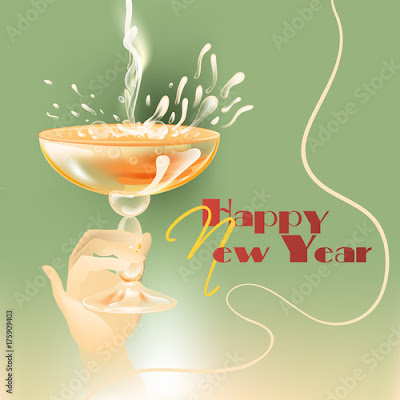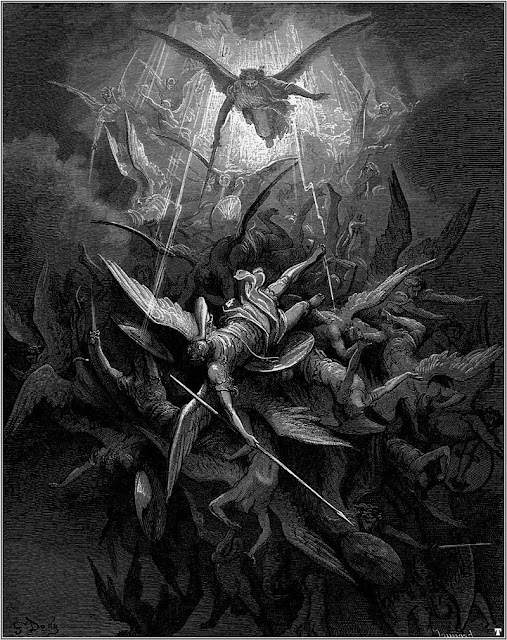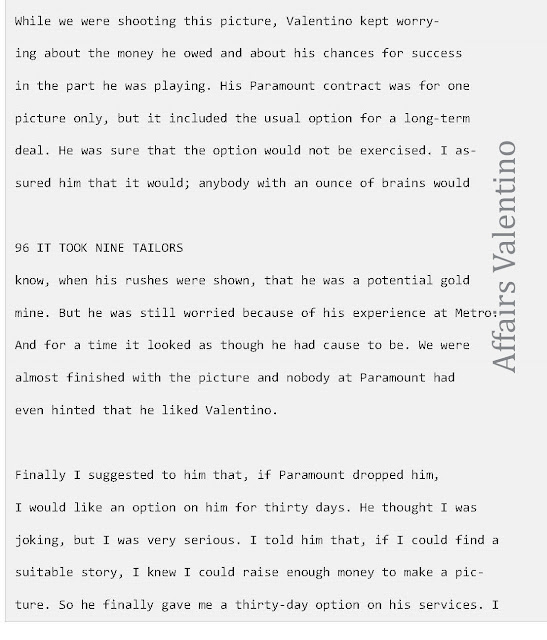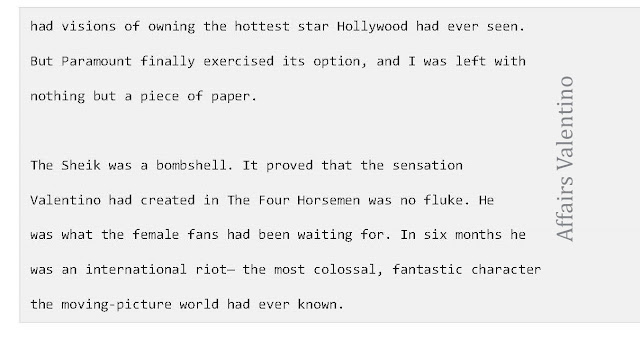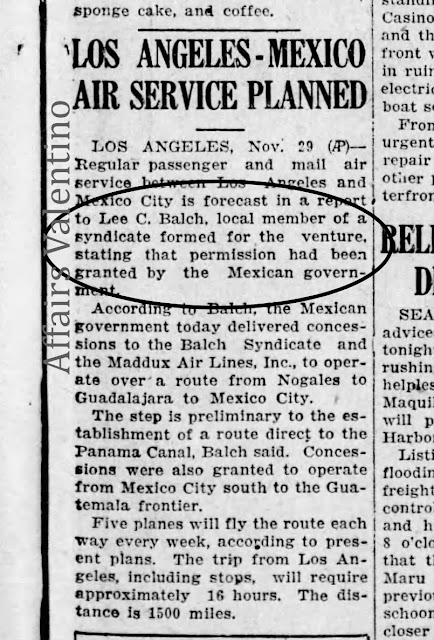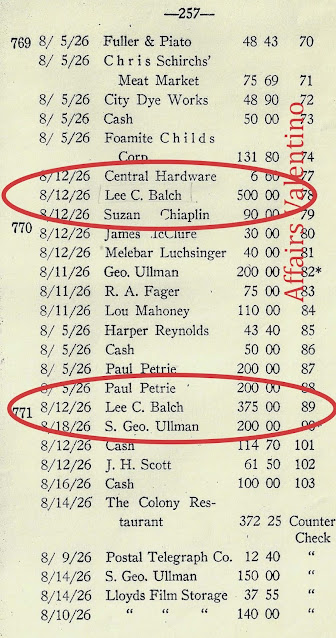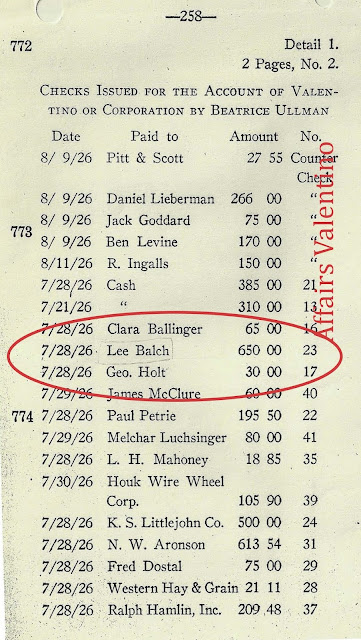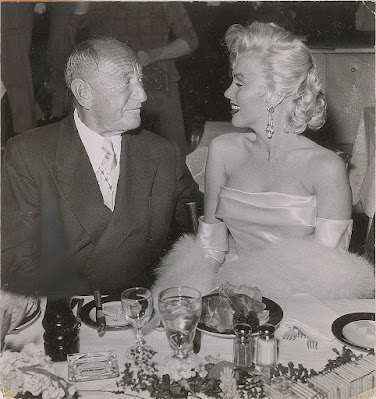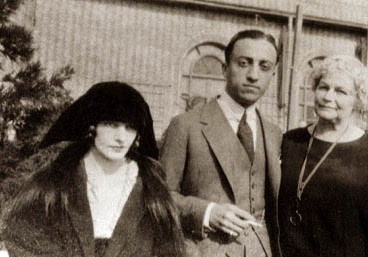It appears that a
well-known Valentino fiction writer is claiming he has uncovered a
new relative of Rudolph Valentino. He presents no other proof than
the surname, Guglielmi. I would say this about that.
The "Guglielmi" he refers
to is a gentleman whose father was a bass player in the orchestra of
the very famous Italian conductor Arturo Toscanini.
I'm talking about Louis
Guglielmi better known by his stage name of Louiguy, a nice
combination of Louis and Guglielmi, even if, in some cases, he used
the pseudonym Roger Luiguy.
He was born in Barcelona
but since he was seven years old, he lived in Paris were he became a
talented musician. He became the accompanying pianist of Édith Piaf
and composed the music of songs which soon became popular hits,
including Le Vagabond (words by Édith Piaf, 1941), Ça Sent si Bon
la France (1942), Marjolaine (1944), La Danseuse est Créole (1946),
Mademoiselle Hortensia (1946), La Vie en Rose (on a musical theme by
Marguerite Monnot and words by Édith Piaf, 1947), Le destin s'amuse
(1947), Cerisier Rose et Pommier Blanc (1950), before turning to
film music, in particular with Sacha Guitry.
But again there is no
proof presented Louiguy has any remote relationship to Valentino.
In Italy there are about
2,836 family units with the family name of Guglielmi, distributed as
follows: the Guglielmis are widespread in northern Italy (49%), then
in the south and islands (27.4%) and in central Italy (23.6%).
Of the Guglielmis of
northern Italy, I know Chicca Guglielmi who is certainly a relative of
Valentino, albeit distant. This is proven by Valentino's sister Maria
Guglielmi Strada who declared, on the occasion of her trip from Genoa
to New York, between 12 and 22 January 1927, that her contact in
Italy was none other than Chicca's grandfather, Guglielmo Guglielmi,
at the time residing in Turin in Corso Vittorio Emanuele II.
Maria names Guglielmo
Guglielmi as her uncle. Yet Guglielmo Guglielmi was not a brother of
Giovanni, Maria's father. But at the time it was customary,
especially in southern Italy, to give the appellation “uncle” to
older second or even third degree cousins. Therefore, Maria calling
Chicca's grandfather, “uncle” is not out of place.
Another detail relating to
the Turin Guglielmis, can be found in a letter Valentino sent to his
friend Bruno Pozzan in February 1911. He tells of having spent the
Christmas holidays of 1910 in Turin, he does not say who he spent
them with, although it is almost certain that he was a guest of the
Turin Guglielmis.
Christmas is a sacred
feast for young Italians and, above all, a feast to be spent with the
family. In Italy it is customary to say: Christmas with your parents
and Easter with whoever you want.
Rodolfo, at the time, was
attending agriculture school in Sant'Ilario Ligure, a suburb of Genoa
and it was certainly much easier for him to get on a train from Genoa
to Turin for a journey of about two hours than to spend a dozen hours
in uncomfortable train cars to reach Taranto.
I have other friends with
the surname Guglielmi, such as Augusto Guglielmi, a.k.a. Marco Guglielmi, a good
actor who was my mentor during the years I lived in Rome to attend
the Academy of Dramatic Art; no relation to Valentino.
Having the name Guglielmi
does not automatically make someone a relative of Rudolph Guglielmi
Valentino. And the name seemed to be one the family, Alberto, could
not not get rid of soon enough. I suggest to the fiction writer that he present some proof before making his claims.

